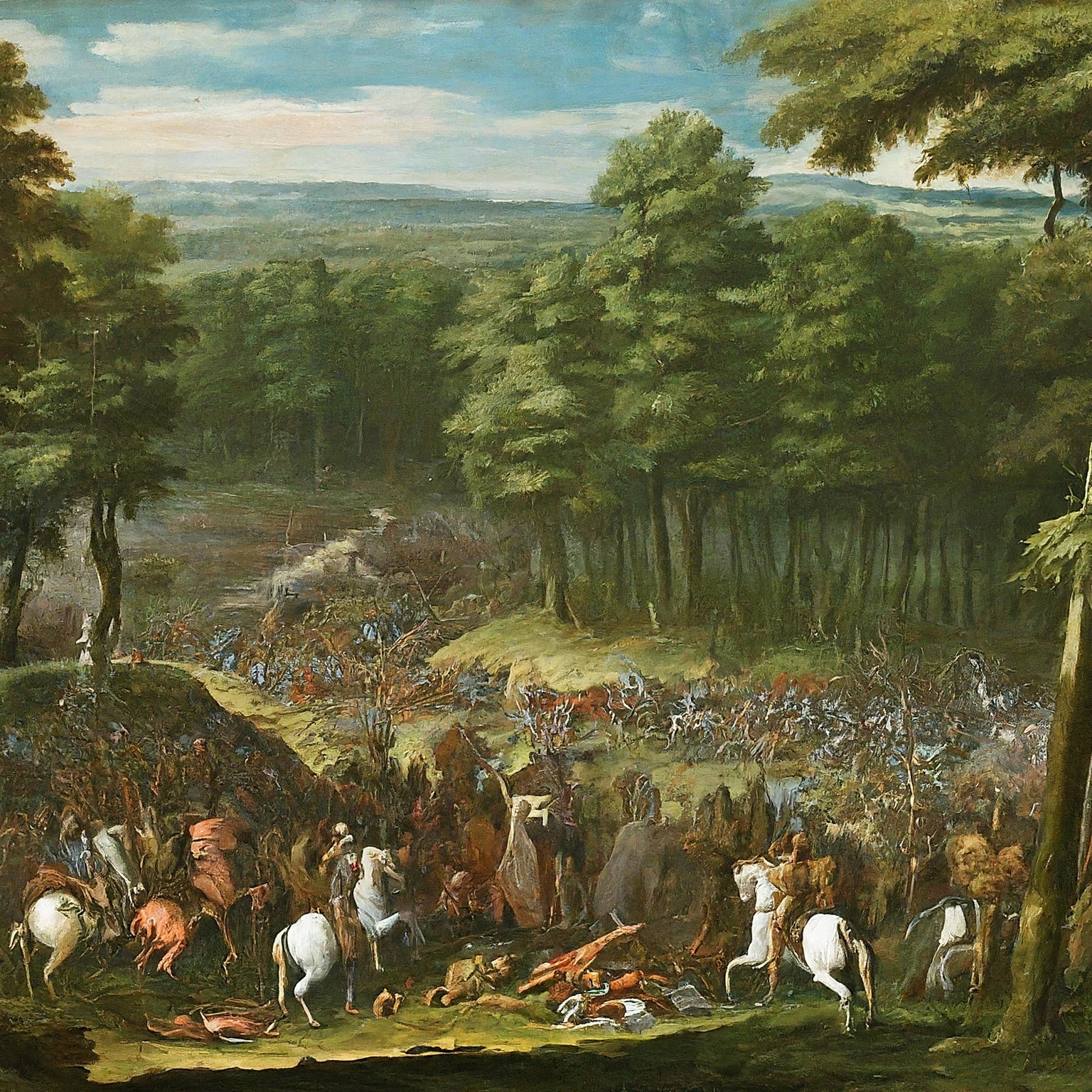In the year 9 CE, the Battle of the Teutoburg Forest became one of the most devastating defeats in Roman history. The battle occurred in the dense forests of modern-day Germany and resulted in the destruction of three Roman legions under the command of Publius Quinctilius Varus. The leader of the Germanic tribes, Arminius, orchestrated the ambush, leading to a historic Germanic victory and halting Roman expansion into central and northern Europe.
At the time, the Roman Empire was expanding its influence into Germania, attempting to subdue the region’s tribes and bring them under Roman control. Arminius, a member of the Cherusci tribe who had previously served as an officer in the Roman auxiliary, secretly united several Germanic tribes and planned an ambush against the Romans.
Varus, trusting Arminius and unaware of the rebellion brewing among the Germanic tribes, led his legions deep into the unfamiliar terrain of the Teutoburg Forest. The dense forest and rugged terrain made Roman formations difficult to maintain. Over several days, Arminius’s forces attacked the Romans in small, swift raids, harassing them at every turn.
Eventually, the Roman legions were overwhelmed, unable to organize an effective defense in the constricting forest. Varus and many of his officers committed suicide, and only a few Romans managed to escape the carnage. The outcome of the battle effectively ended Roman efforts to conquer Germania, and the Rhine River became the border between the Roman Empire and the Germanic lands.
The Battle of the Teutoburg Forest had lasting consequences for both Rome and the Germanic tribes. It emboldened the Germanic peoples, fostering a sense of independence and resistance to foreign rule. For the Romans, the battle was a humiliating defeat that marked the limit of their empire’s expansion in northern Europe.


